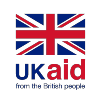As a cohort of people, ‘children in work’ have become critical to the everyday functioning of diverse supply chain systems.
This Working Paper considers diverse commodity chains (leather, waste, recycling and sex) to explore the business realities that generate child labour in its worst forms. A review of the literature finds that occurrence of the worst forms of child labour (WFCL) in supply chain systems is contingent on the organising logics and strategies adopted by actors in both the formal and informal economies. Piecing together the available evidence, the paper hypothesises that a supply chain system is sensitive to the use of WFCL when downward pressure to take on business risk cannot be matched by the economic resilience to absorb that risk. Emergencies and persistent stressors may increase risk and reduce resilience, shifting norms and behaviour. There is a need for further work to learn from business owners and workers in the informal economy.
Citation
Aked, J. (2021) Supply Chains, the Informal Economy, and the Worst Forms of Child Labour, CLARISSA Working Paper 8, Brighton: Institute of Development Studies, DOI: 10.19088/CLARISSA.2021.006
 Download full article
Download full article